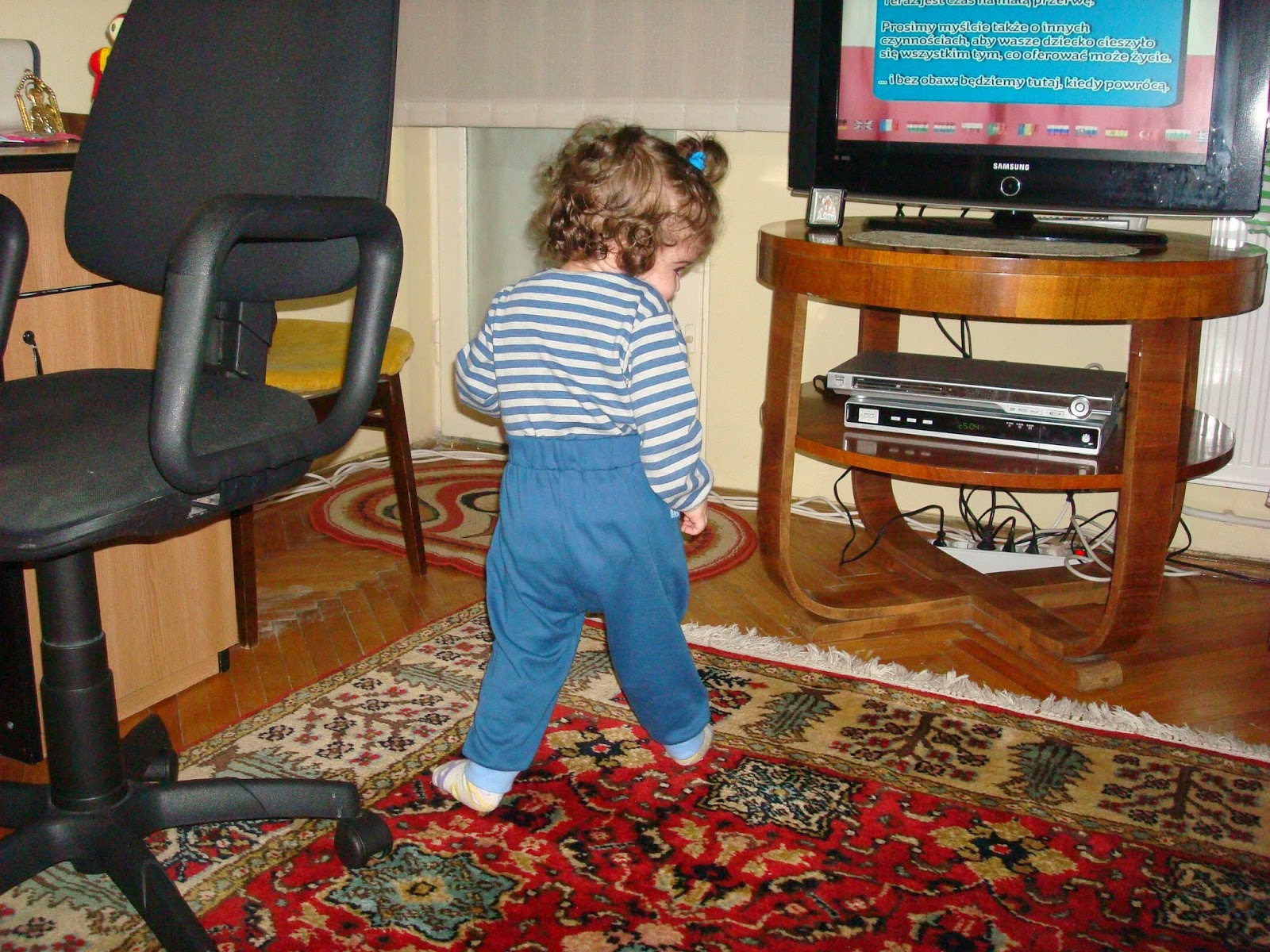It may seem a little strange, but
although David is 15 months, he still can not walk by himself. He doesn't have
a health problem, he just doesn't trust himself and we think this is also because of his premature birth. However, at the age of 9 months and up to a
month ago, David walked using a baby walker. Now I believe I didn’t do the
right thing by keeping our little boy in that baby walker.
Since I didn’t use
it any more, David began to search for something to sustain him, he had a tendency
to let himself down. At first he moved around using all his four members. He used
to walk like this through the whole house and this made him a great pleasure.
Then he began to walk sustaining
himself by walls, furniture or other objects. There are moments in which he
falls down, but he rises quickly and continues his activity.
Every day we make exercises, keep him by the hand and walk like this through the house.
His likes this very much.
Sometimes he stays on his feet for a
few seconds. He even takes a step or two. But then he looses his balance and
falls. I realized that this phase of our child's life should be treated with
patience, and one day the miracle will happen-David will walk on his own little
feet. I just can’t wait that time!







